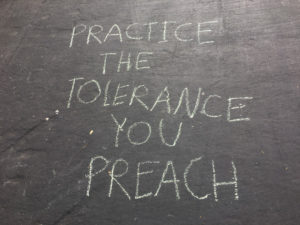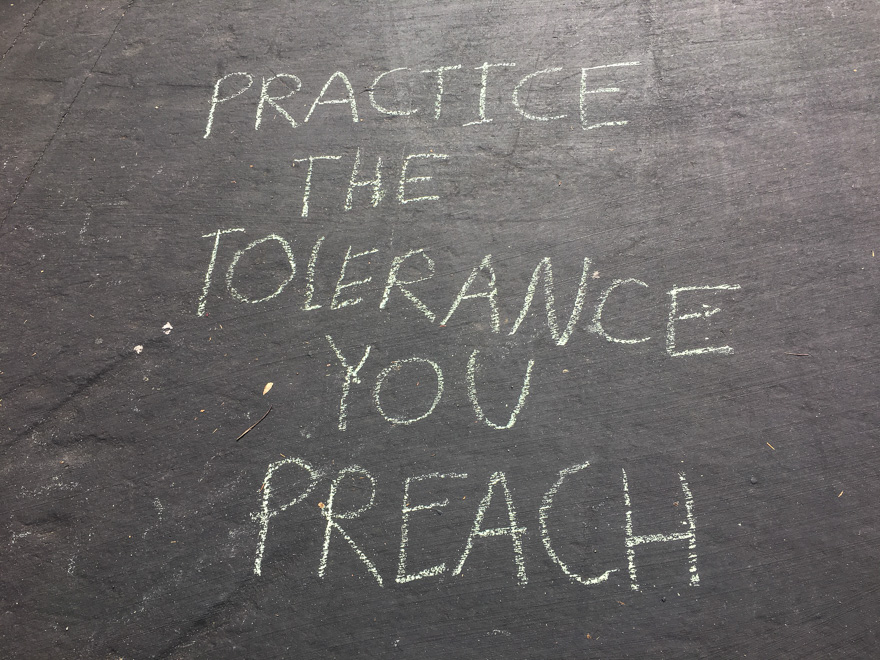Self-proclaimed Islamophobe Robert Spencer’s upcoming visit to campus by invitation from Stanford College Republicans (SCR) sparked debate on free speech and inclusivity among faculty and students.

Spencer is the director of Jihad Watch, a blog that has been described as “a leader in the counter-jihad movement.” He has also authored 17 books on the topic, including one that is due this month called “Confessions of an Islamophobe.” The Southern Poverty Law Center (SPLC) has called Spencer “one of America’s most prolific and vociferous anti-Muslim propagandists.” SPLC has also designated Stop Islamization of America (SIOA), a group that Spencer co-founded, as a hate group since 2010.
Discussion on campus has ranged from whether Spencer should be allowed to speak on campus in general to whether student fees should contribute to the speaker event.
Campus response
Stanford’s response to the event has been divided on two main issues: whether Spencer’s presence will contribute productively to discussions on campus and whether he should be banned in principle for propagating hate speech.
SCR published an article in The Stanford Review outlining their justification for hosting Spencer. In the piece, SCR asserted that threats from “radical Islamic terrorism” could pose the greatest risk to the United States. They also cited Spencer’s academic credentials, stating that he has led training seminars for the FBI and other security groups, and suggested that many Stanford students have not been forced to confront the possibility that “certain passages in Islamic texts” help provide “the ideological underpinning and inspiration for radical Islamic terrorism.”
SCR as a group declined to speak to The Daily save for collective press statements; individual members said they had been instructed by SCR leadership not to talk to reporters about the event. SCR told The Daily that the group has settled on a policy it believes will “protect [its] members from potential harassment” and turned down TV interview requests, adding that “sadly this has not been enough.”
In a statement to The Daily, the Stanford Democrats criticized SCR for “simply seeking to provoke the student population, adding nothing of value to the political dialogue.”
The debate on Spencer’s value as a speaker has not been wholly partisan. Ravi Jacques ’20, who founded the Stanford Sphere to challenge the “liberal consensus” on campus, said that he objected to the conversation on both the conservative and liberal sides.
“I feel that both left and right have kind of screwed up here,” said Jacques. “The right, the Republicans, shouldn’t have invited him, not because of his ideas, but because there are people who express his ideas with far more credibility and with a lot less kind of nastiness. Then the left — I think it’s important to let this guy speak at the same time.”
Jacques raised Ayaan Hirsi Ail, a research fellow at the Hoover Institution, as an example of a speaker who could bring a more conservative stance towards Islam without provoking students as much as Spencer might.
“If you want to bring a scholar in this topic, at least bring someone that is in line with Stanford’s own standards,” said Ramah Awad ’17, a senior graduating this quarter who found Spencer’s academic credentials lacking.
Spencer defended the factual basis for his speeches and writings to date in an email to The Daily.
“None of the many attacks on me in The Daily have contained even one false statement about Islam or jihad terror that I have made,” Spencer wrote.
He also criticized Stanford’s “leftist” student body for rejecting his views simply because he disagreed with them.
“The demonization of any voice that dissents from the leftist line is the hallmark of an Antifa recruitment center, not of a respectable university,” he added.
Jacques’ suggestion that left-leaning students at Stanford engage directly with Spencer’s position made a similar point to a statement from President Marc Tessier-Lavigne and Provost Persis Drell. Titled “Advancing free speech and inclusion,” the statement advocated freedom of expression and open exchange of differing opinions as a pillar of the University’s inclusive educational mission.
“We have an extraordinary opportunity here at Stanford to learn from each other, to have our thinking challenged, to sharpen our arguments and to develop better ideas from thoughtful debate,” wrote Tessier-Lavigne and Drell. “Any day here that ends without having learned something from another person, or having had one’s mind changed or one’s views enriched by another person, is a missed opportunity.”
In the statement, Tessier-Lavigne and Drell differed from many student groups who spoke to The Daily. For instance, Stanford Students for Justice in Palestine (SJP) believe that hate speech is worth banning in its own right as it affects people and communities.
Cameron Mirhossaini ’20, co-president of SJP, noted that the group has a special stake in Spencer’s visit because Palestine is majority Muslim, and “oftentimes Islamophobia is used to derail its cause and derail its legitimacy by Zionism and other movements.” However, he emphasized that Islamophobic speech can harm people beyond the Muslim community.
“Islamophobia should be everyone’s problem because the connotations of Islam are highly racialized in the United States so that not only specifically Muslim people who are affected,” said Mirhossaini. “Anyone who can be identified as Muslim — i.e. brown people, black people, even white people — can be portrayed negatively and also attacked by Islamophobia.”
Abdallah Abuhashem ’19, the co-president of the Muslim Student Union, added that Stanford using its resources and reputation to give a platform to an Islamophobic speaker is inherently problematic.
“For me, personally, and for the people that are opposing the event, we do see this as a hate speech,” he said. “We do see this as Stanford giving a platform for someone who should not be allowed on campus…We think that it could encourage some future events that are hateful towards Muslims.”
Responses to Spencer’s visit have not been limited to conversation. On Nov. 7, a police report noted that an unknown suspect took down SCR posters and flyers advertising the Spencer event and tore them to pieces.
The funding problem
Part of the controversy surrounding the event concerned SCR funding that was approved by the Undergraduate Senate.
At its meeting on Nov. 7, the Senate announced that it would not revoke the funding for the event even as it denounced Spencer’s opinions and his visit.
Reading aloud from the prepared statement, Senate Chair Kojoh Atta ’20 added that the Senate condemned SCR’s “use of free speech to invite a speaker who has been cited as an inspiration for others who have committed violence (according to The New York Times) and has contributed to the legitimization of Islamophobia in the public sphere.”
Caleb Smith ’17 M.A. ’18, who is also a Daily News staffer, initiated a petition to protest the use of student fees to help fund the event.
“Why do we have to be complicit by using our student fees to bring someone who actively demonizes a group of our friends and neighbors just because of their religion?” said Smith.
The petition, started before the funds had not yet been encumbered, successfully passed the threshold to be placed on the ASSU referendum ballot, garnering over 900 signatures.
“The fact that we did get 900 signatures in … five days basically shows how deep the feeling is on campus about this event,” Smith said.
However, the funds had already been appropriated for the club at the time of the Senate discussion, preventing the Senate from revoking it.
In addition to funding from the ASSU, a Q&A posted by the University regarding the event and free speech stated that the Young America’s Foundation is a co-sponsor. The Q&A also notes that “some University funds will also be provided through a program that provides a partial subsidy for events requiring security.”
Drell supported the decision to use University funds for event security in response to questions from the Faculty Senate last Thursday.
“We need to defend free speech,” said Drell. “If it costs, it will cost.”
Rally against Islamophobia
During a town hall last week, a coalition of concerned students gathered to discuss action to oppose the event. The coalition met several times in the leadup to the event, drafting an open letter to SCR and reaching out to student groups asking them to sign the letter.
The group of students is also organizing the rally that will be held before the event. The rally’s Facebook page notes that it will be held outside the building on the grass in front of Mitchell Earth Sciences and invites people to come to “show solidarity with those affected by Islamophobia.”
In addition to the rally, a teach-in has been planned by Sandra Schachat, a second-year Ph.D. student in geological sciences. According to Schachat, an e-mail was sent last week to everyone who works in Geocorner suggesting that people should not plan to work in the building that evening and to lock their office doors.
“It is deeply offensive that we have been asked to vacate our workplace to make room for an Islamophobe” Schachat wrote in an email to The Daily. “With that in mind, we have planned a teach-in where individuals of all faiths can learn about earth science in a respectful environment.”
“Because security protocols have apparently been implemented for Spencer’s visit, we expect Stanford to also ensure the security of those of us who will spend Tuesday night using Geocorner for its intended purpose — teaching and learning about earth science,” she added.
Spencer will speak on the “Threat from Terrorism” on Tuesday, Nov. 14 at 8:15 p.m. The event will consist of approximately 45 minutes of lecture from Spencer and a 45-minute Q&A segment.
Hannah Knowles contributed reporting.
Contact Jordan Payne at jpayne1 ‘at’ stanford.edu.
